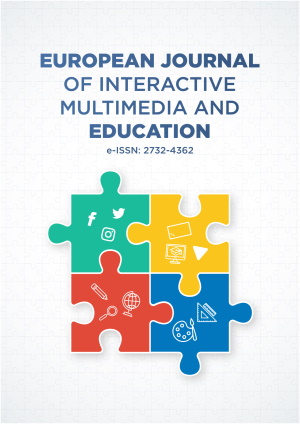Keyword: higher education
6 articles found.
Research Article
Investigating Factors Influencing Students’ Behavioral Intentions Towards Mobile Learning Devices in Higher Educational Institutions
EUR J INTERACT MULTIMED ED, Volume 3, Issue 2, July 2022, Article No: e02215
https://doi.org/10.30935/ejimed/12519Research Article
Digital Learning in Higher Education: A Road to Transformation and Reform
EUR J INTERACT MULTIMED ED, Volume 3, Issue 1, January 2022, Article No: e02206
https://doi.org/10.30935/ejimed/11493Research Article
Rethinking Pedagogy: Interrogating Ways of Promoting Deeper Learning in Higher Education
EUR J INTERACT MULTIMED ED, Volume 3, Issue 1, January 2022, Article No: e02204
https://doi.org/10.30935/ejimed/11439Research Article
University Teachers’ Attitudes Towards Distance Learning During COVID-19 Pandemic: Hurdles, Challenges, and Take-away Lessons
EUR J INTERACT MULTIMED ED, Volume 3, Issue 1, January 2022, Article No: e02201
https://doi.org/10.30935/ejimed/11436Research Article
Using Flipped Classroom Model: Factors Influencing Students’ Satisfaction
EUR J INTERACT MULTIMED ED, Volume 2, Issue 2, July 2021, Article No: e02112
https://doi.org/10.30935/ejimed/11260Research Article
Arab Pre-service Teachers’ Perspectives on the Role of ICT in Learning and beyond School
EUR J INTERACT MULTIMED ED, Volume 1, Issue 2, July 2020, Article No: e02008
https://doi.org/10.30935/ejimed/9138
